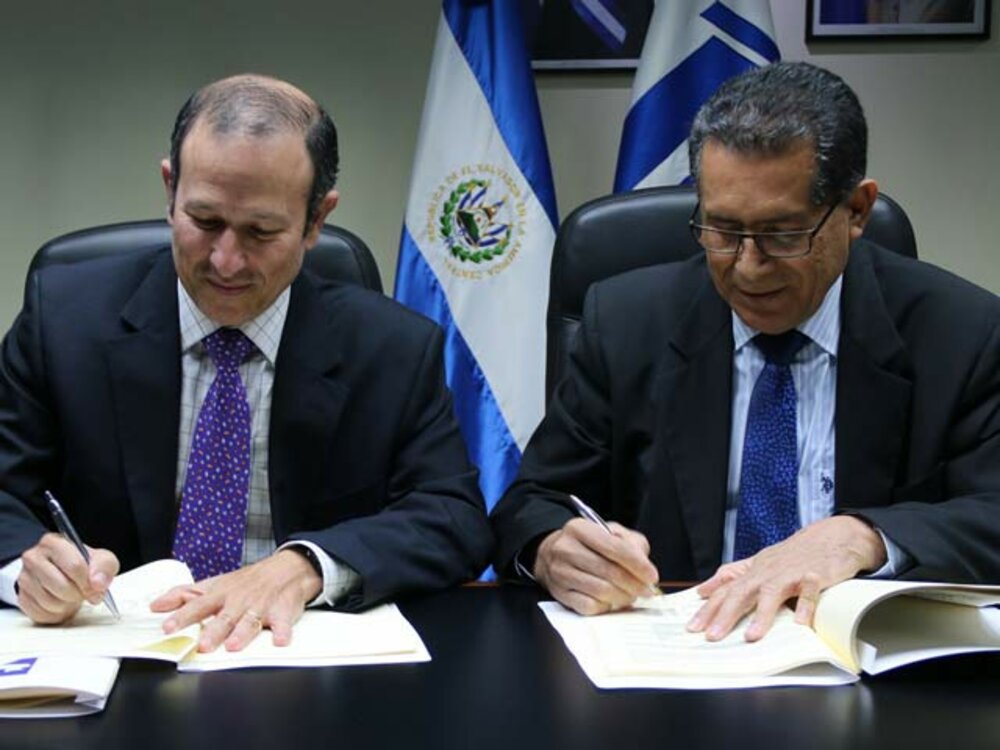US$100 million for housing solutions in El Salvador

CABEI will grant new loans through the Social Housing Fund.
Tegucigalpa, May 24, 2019.- The Central American Bank for Economic Integration (CABEI) granted an extension to the Global Credit Line (GCL) of the Social Housing Fund (FSV) for US$60 million; the GCL's new amount is US$100 million.
CABEI Country Manager for El Salvador, Mr. Raúl Castaneda stated that, "The new loan will enable CABEI to increase its financing support for one of the basic needs of the Salvadoran population, especially the social housing sector."
He added that the operation is consistent with the Bank's 2015-2019 Institutional Strategy in the Focus Area "Financial Intermediation and Finance for Development," impacting on the Strategic Axis of "Social Development" and in line with two of the Sustainable Development Goals: 8. Decent work and economic growth and 11. Sustainable cities and communities through support for initiatives aimed at social housing.
The short-term expected effects derived from the expansion of the Global Credit Line will benefit a total of 417,753 people, of which 48 percent are women.
Housing solutions for the region
Among its financial intermediation products, CABEI has developed specific programs for the procurement of housing. In November 2010, it approved the "Financial Intermediation Program for Social Housing," through which it established two subprograms, pursuant to the origin of the resources, these are:
1. Financial Intermediation Program for Social Housing: Its objective is to help low-income households acquire, build and improve their homes.
2. Financial Intermediation Program for Middle Housing: This program aims to provide resources for the purchase, remodeling and improvement of housing, in addition to purchasing productive assets and working capital in order to help overcome the region’s housing deficit.
Since its approval to date, an amount of US$322,642,712.00 has been channeled through 36 financial institutions, benefiting a total of 59,956 low-income households that now have more decent housing.
Of the total approval, 31.2% (US$100,727,544.00) correspond to loans for Housing Improvement, 43.2% (US$138,929,542.00) involve loans for the Purchase of Housing, 18.1% (US$58,474,366.00) for Housing Development loans and 7.6% (US$24,511,260.00) for the complete Construction of Housing.






